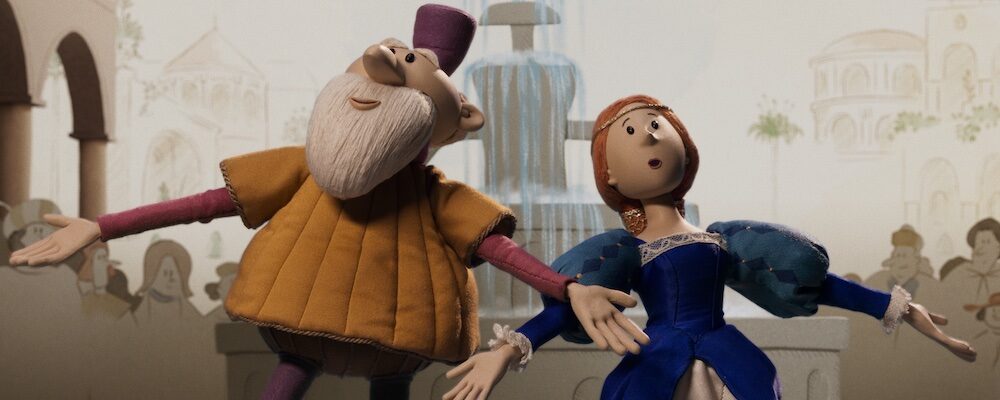‘The Inventor’: Playful Stop-Motion Animation Celebrates Leonardo da Vinci’s Scientific Explorations
Sandra Miska
The later years of one of the great minds and talents of the Renaissance era is celebrated in the stop-motion and hand drawn animated feature “The Inventor.” Leonardo da Vinci may be best remembered for painting “Mona Lisa” and “The Last Supper,” but he was known for much more beyond his artistic achievements. Written and directed by Pixar veteran Jim Capobianco, this charming and educational film follows Leonardo (voiced by Stephen Fry) as he flees his native Italy for France in 1516, where he ends up at the court of the arrogant young king, Francis I (Gauthier Battoue).
Although “The Inventor” is an animation, it is not for young children, as it deals with some heavy themes. It is geared more towards older children with inquisitive minds, but smart enough for adults to get into. Now in the twilight of his life, Leonardo is in hot water with Pope Leo X (Matt Berry) for studying human cadavers. His main reason for studying the human body is for a rather romantic reason, as he wants to learn about the human soul.
Instead of banishing him or throwing him into a dungeon, Pope Leo orders Leonardo to use his talents to build instruments of war to be used against the French. The artist soon realizes that this would be a futile endeavor, and escapes to France hoping to find a more accepting, creative environment. Once there, he meets Francis, whose primary goal is to bolster his own image and one-up the two other young major European monarchs, Henry VII of England (Daniel Swan) and Charles V of Spain (Max Baumgarten).
This is very much a man’s world, but two of the most influential figures at court are women. They are Louise of Savoy (Marion Cotillard), the king’s proud mother who enables his narcissistic behavior, and Marguerite of Navarre (Daisy Ridley), his intelligent and curious older sister. Francis belittles the latter in front of his court, but it is clear that she would have made a much better monarch if she had been born male, and he knows this. Leonardo lays out plans to build an “Ideal City” in France, but only Marguerite can see the great potential in his vision. As for Francis, he is only interested in covering himself with glory, and only cares if this new city will contain a statue of himself and other symbols of strength that would send a message to his rival kings.
The heart of the film is the relationship between Marguerite and Leonardo. It is not a romantic connection, as Leonardo is past that stage in his life, but something more profound and intellectual. Highlights include their discussions of science and faith, as well as their detailing how a well-planned city is similar to a human body, a living, breathing thing. For example, an irrigation system is much like the circulatory system in the human body.
Finally, “The Inventor” contains some lovely musical numbers. Not enough to overwhelm the story, but a few are put in at the right times to elevate the emotional feel of the film. All of this culminates in a wondrous pageant meant to show off the glittering and sophisticated court to Henry and Charles, but winds up being so much more and even humbles Francis.
“The Inventor” release Sept. 15 in theaters nationwide.

